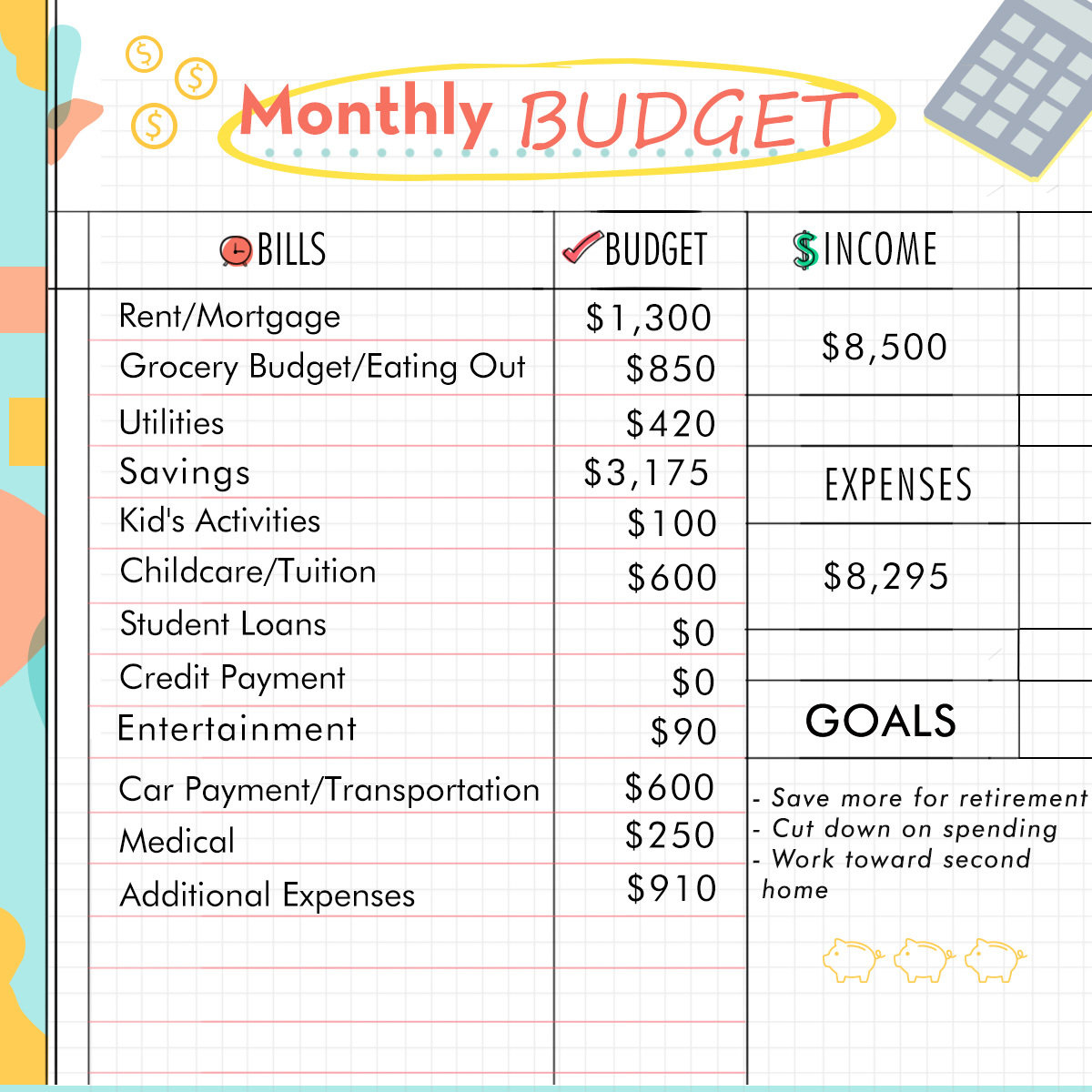
When bills amass, daycare costs rise, and the numbers just don't add up, managing the household budget can feel overwhelming.
For those of us who struggle with the nitty-gritty numbers of it all, it can be helpful to see how other families, like ours, manage their households. Asking friends and family about their financial status can still feel pretty taboo, and what's worse, sometimes we can't relate financially to anyone in our circles.
So we decided to do the dirty work for you.
In an effort to help moms take a closer look at their finances, we reached out to mothers across the country and asked them to analyze their budgets. Each month, we'll have one mom anonymously tell us her marital status, annual income, and about how much her family has to work with each month. Whether the spotlight is on a mom who splits the bills with a partner or a single mama making it work on her own, we want to give readers an inside peek into how they're making it work. Then, as an added bonus, a financial advisor (who is also a mother herself) will weigh in with three major takeaways and a bit of advice all moms can benefit from.
First up is a 41-year-old, white, married mom from Philadelphia, Pennsylvania. She and her husband have an 8-year-old-daughter. Here are her expenses:
To clarify a few details about this family's life, they are currently living on a combined household income of $160,000 a year, giving them about $8,500 to work with each month. This mom and her Philly family live in a three-bedroom home that they own. Their transportation expenses include a car payment, tolls, and gas. When it comes to "additional expenses," their personal breakdown includes clothing ($150), recurring donations ($50), pet care for their cat ($50), a house cleaner ($160), miscellaneous home expenses ($100) and discretionary money ($400). Childcare considers not only the $100 they pay grandparents to watch their daughter, but also saving $500 for summer childcare and camps.
What is probably most interesting (and impressive) is how the family breaks down their savings.

They are able to put a lot of monthly money into savings. Long-term investments get $1,625 of the monthly income. Short-term, which includes gifts, vacations, and home improvements is roughly $700. They also have a rainy day fund ($400) and save for insurance and maintenance on their car ($450).
"Forced automatic saving has helped so far," she told CafeMom. "But we are always trying to spend less and save more to meet our goals faster."
That, of course, doesn't mean she wasn't a little shocked at looking at her budget on paper.
"Our discretionary funds and grocery expenses are higher than I thought," she admitted.
And when it comes to financial goals, she and her family have plenty.
"Primarily, to be able to eventually buy a second home without needing to sell our current home. Or to purchase a rental property. Beyond this, to retire early and/or become financially independent."
Her biggest financial fears stem mostly from anxiety about whether she and her husband will lose their jobs.
All in all, this Philly family has a robust budget to scrutinize, which is exactly what we had our trusty financial planner do.
Our financial planner Nicole Middendorf had some interesting takeaways for this Philly family.

WHAT THEY GOT RIGHT:
"What is great is that she is saving for the long term and short term — and no credit card debt!"
WHAT TO IMPROVE ON:
"Definitely cut the grocery expenses — really it could be cut at least a third. If she had teenage boys, I could see the high expense. I would say have the goal to cut $50-$100 each month for the next few months. And reevaluate the kid's activities — I highly doubt it’s [only] $100 a month. I have an 8-year-old, too, and gymnastics, dance, hockey, etc. is expensive!
HOW TO MOVE FORWARD:
"Set up more automatic savings, get rid of debt (car), and then build an emergency fund. I’m not sure what the rate is on the car or home, but she could possibly refinance or get a home equity line if she doesn’t have one. Once you have a loan it is set, but if she owes 6 percent, as an example, on her car, that she needs to get rid of ASAP."
Her biggest piece of advice?
"Get a financial plan. Before they buy a second home, they need to know if they are on track to retirement or college expenses. Meet with a wealth advisor or a financial advisor. Most offer initial consults at no cost. We do have some calculators and tools on our website. But, in general, the goal is to max your 401(k) ($19K a year and same with husband), max the Roth IRA ($6K each spouse), and then at least accrue 6-12 months in liquid emergency savings."
And that's how she does it, on a budget!




